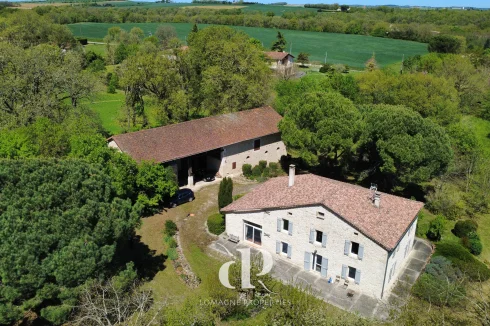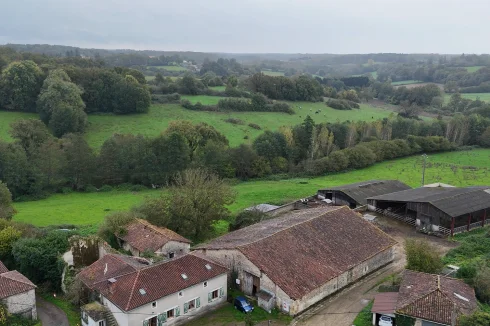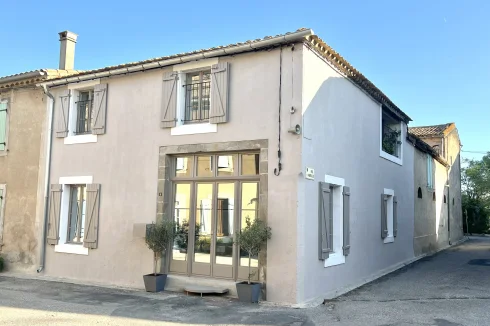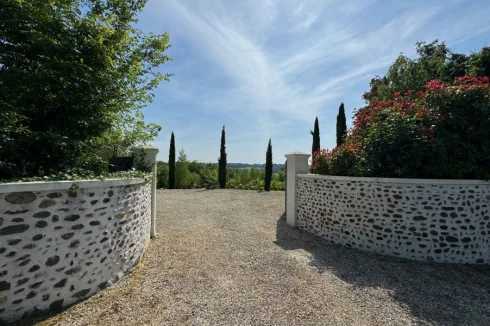Camping Sites under Threat After Storm Deaths
Thursday 01 April 2010
The death of 53 people in storm floods in the Vendée and Charente Maritime in February has brought into question the safety of some camp sites in France.
Not unexpectedly, many camp sites on the French coasts are located in low lying flood risk areas, while others are located in river valleys also liable to flooding.
Official figures show that around 33% of camping sites in the Vaucluse, 50% of those in Isère, and 69% in the Gard are located in flood risk areas.
The commune of Argelès-sur-Mer (Pyrénées-Orientales) contains no less than 50 camp sites on land liable to flooding.
Indeed, not only does the risk apply to camp sites, but many caravan and mobile home sites are similarly located in risk areas.
Following flood catastrophes that occurred in Grand-Bornand in the Haute-Savoie in 1987, when 23 campers died, and again in Vaison-la-Romaine (Vaucluse) in 1992 when there were 11 deaths, the local authorities closed the sites as they were considered to be too dangerous.
In other cases, local councils have ordered the temporary closure of camping sites they deemed did not meet flood safety requirements, in one famous case in 1996 even sending along local gendarmes to actually evict permanent mobile residents from the site as the owner was unwilling to implement the necessary measures.
Since the storms in Charente Maritime the prefecture has ordered the closure of the municipal camp site at La Faute-sur-Mer in the Vendée where half of the recent storm victims died. Around 200 nearby mobile home owners are affected by the order, a large number of whom live on the site all year round.
There had previously been a long legal battle between the local council and the prefecture about this site. In 2008, the council won an appeal court hearing against the closure of their camping site by the local prefecture. They won that case, but happily in February when the storm occurred, the camp site was empty.
Authorities across the country are finding it difficult to come up with answers about how just how to deal with a risk to safety for these sites that may only appear once or twice every century.
Following the disaster at Grand-Bornand, all camp sites are now required to be registered with the local prefecture, with each given a risk rating. But just how difficult it is to make a judgement about risk was evident at Vaison-la-Romaine, which was not considered to be a site at high risk.
So at a minimum, it is likely there will be stricter planning controls on the establishment of camp sites in flood risk areas, and safety requirements will also be reinforced.
All camp sites in these areas are required by law to ensure that a range of measures are in place to deal with a flood emergency, notably by appropriate alert and evacuation procedures, as well as information at the entrance to the site informing visitors that the site is located in a flood risk area. The campers must also be provided with a leaflet explaining the security procedures in place.
Guylhem Féraud Président of the Fédération Nationale de l'Hôtellerie en Plein Air, which represents owners of 4000 camp sites, considers that there is a need to remind owners of the security procedures needed, but that authorities should not overact to the recent storm incident, reminding us that no-one has died from flooding on a camp site since 1992.
New Storms on the Horizon
Meanwhile the fall-out from the deaths that occurred in the recent storms continues.
President Sarkozy has announced that no redevelopment will take place in some of the worst affected areas, and there is to be a programme of reinforcement of sea defences, with 50% of the funding from central government. However, many associations and local authorities are already stating that they cannot afford their own share of the costs.
Local authorities in risk areas are also to be required to ensure that risk plans are in place that prevent further construction in areas at high risk of flooding. Many have resisted the preparation of these plans because of the constraints they impose on new development in the affected areas.
Some French papers have also reported family links between a local politician and a developer of one of the housing developments that was devastated in the storm in the Charente Maritime.
According to the daily Libération the deputy mayor ofLa Faute-sur-Mer, where there were 26 deaths, signed off a planning consent on land in which their son was involved as a developer and where deaths occurred. As a result there are widespread accusations of a manifest conflict of interest, with the possibility that legal action will follow.
Thank you for showing an interest in our News section.
Our News section is no longer being published although our catalogue of articles remains in place.
If you found our News useful, please have a look at France Insider, our subscription based News service with in-depth analysis, or our authoritative Guides to France.
If you require advice and assistance with the purchase of French property and moving to France, then take a look at the France Insider Property Clinic.





